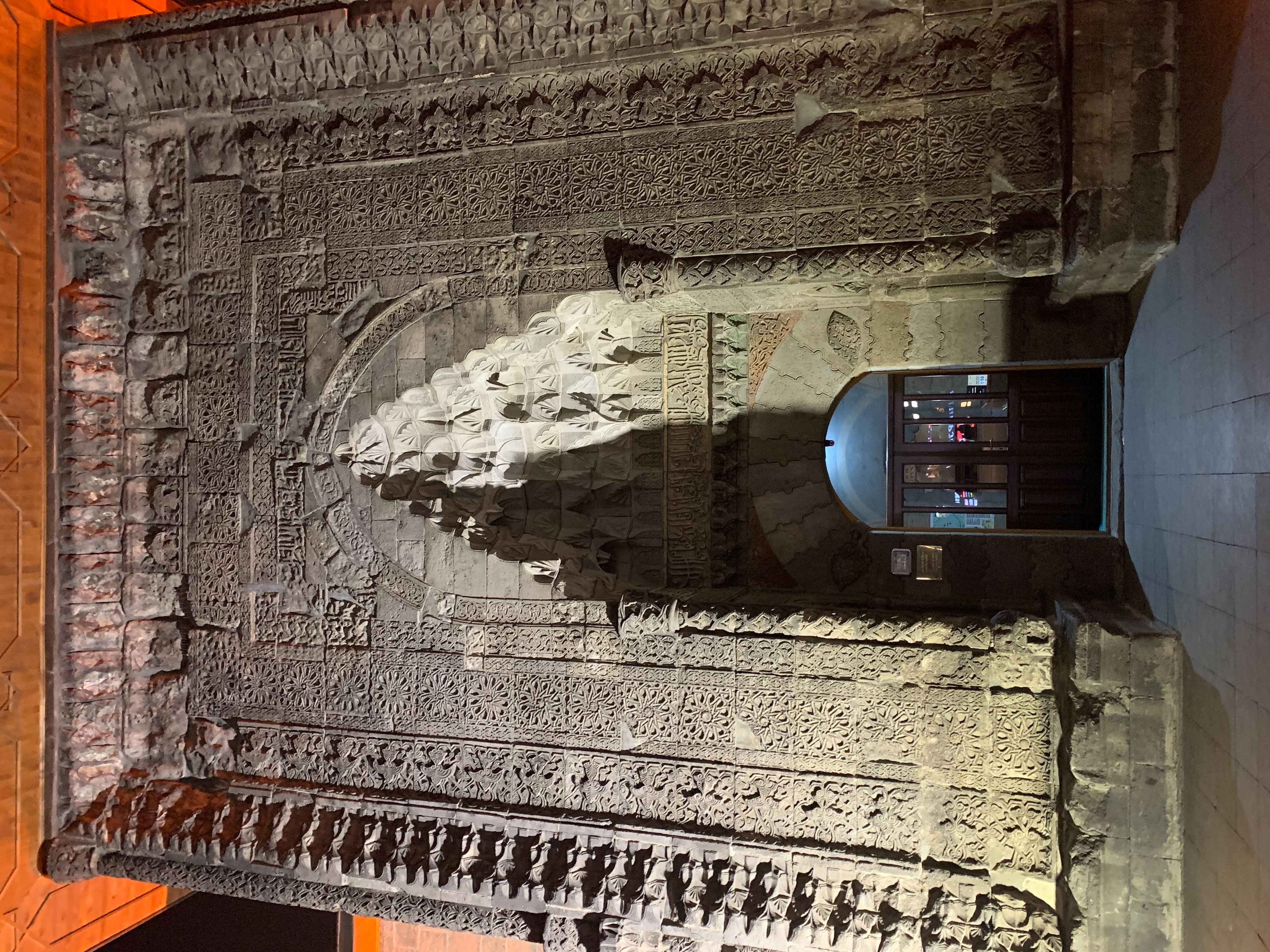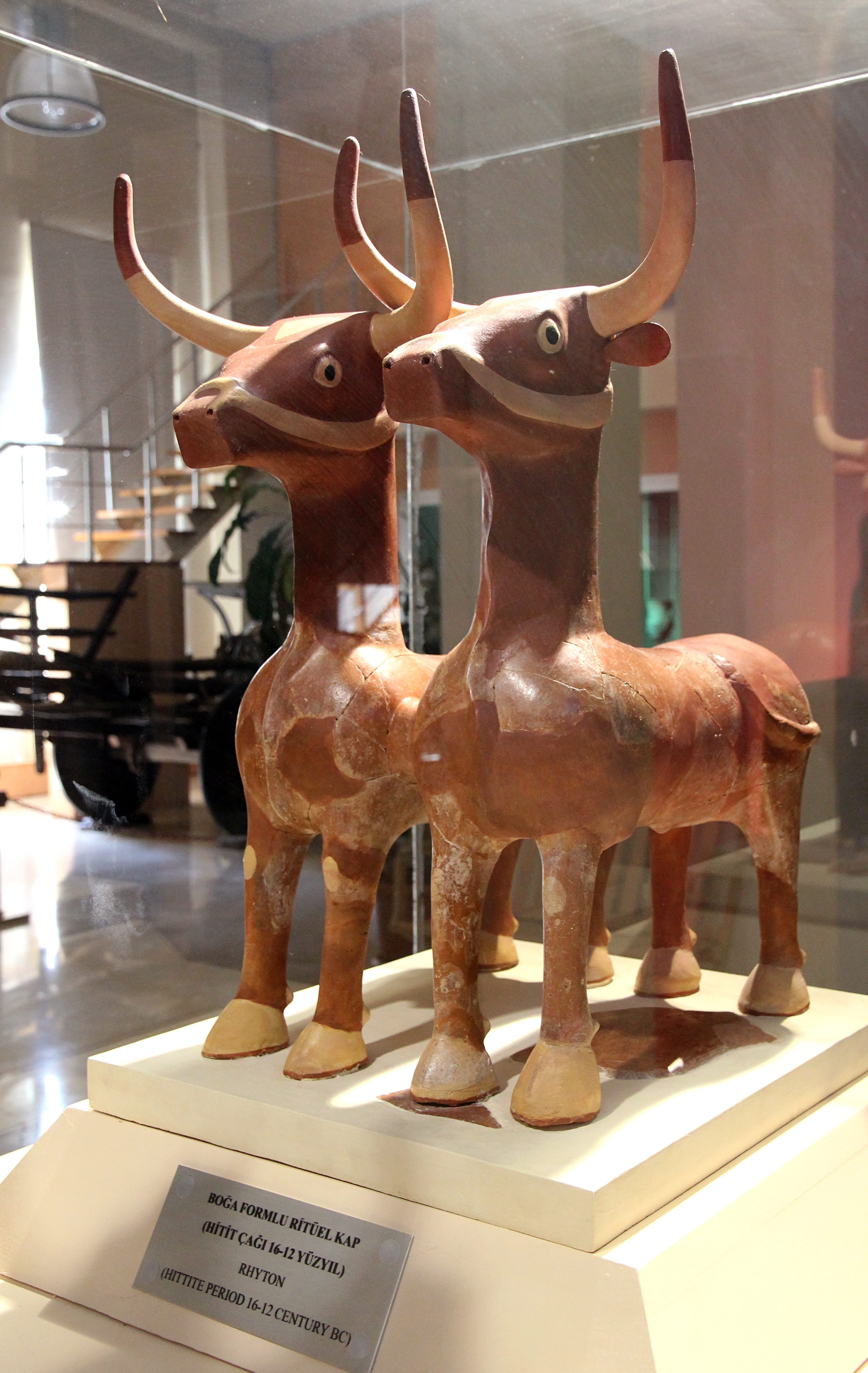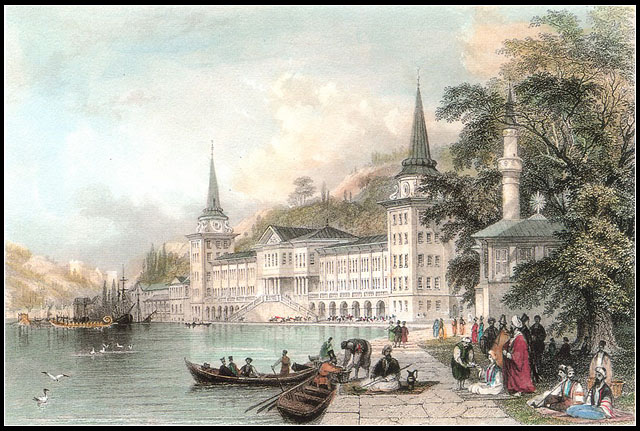|
Ňěefik Can
Ňěefik Can¬†(June 22, 1909 ‚Äď January 23, 2005) was a Turkish people, Turkish spiritual leader and the last Sufism, Sufi master in the Mevlevi Order, Mevlevi Sufi tradition in Turkey. Biography Born in 1909 in Tebricik village of Erzurum, Ňěefik Can completed his primary education in YńĪldńĪzeli, Sivas.¬†Can learned Arabic and Persian language, Persian at an early age from his father, and graduated from the Kuleli Military High School in 1929 and the Military Academy in 1931.¬†Then, with the permission of the Ministry of National Defense, he became a teacher at Istanbul University, and in 1935, completed his internship under Tahir√ľ l-Mevlevi at Kuleli Military High School.¬†Until his retirement in 1965, he taught at various military schools, civilian colleges and high schools. He was initiated into the Mevlevi Sufi order by his spiritual teacher Tahir al-Mevlevi and had been the head of the tradition until his death on January 23, 2005. He was the spiritual teacher of Hayat Nur ... [...More Info...] [...Related Items...] OR: [Wikipedia] [Google] [Baidu] |
Turkish People
Turks (), or Turkish people, are the largest Turkic peoples, Turkic ethnic group, comprising the majority of the population of Turkey and Northern Cyprus. They generally speak the various Turkish dialects. In addition, centuries-old Turkish communities in the former Ottoman Empire, ethnic Turkish communities still exist across other former territories of the Ottoman Empire. Article 66 of the Constitution of Turkey defines a ''Turk'' as anyone who is a citizen of the Turkish state. While the legal use of the term ''Turkish'' as it pertains to a citizen of Turkey is different from the term's ethnic definition, the majority of the Turkish population (an estimated 70 to 75 percent) are of Turkish ethnicity. The vast majority of Turks are Sunni Islam, Sunni Muslims, with a notable minority practicing Alevism. The ethnic Turks can therefore be distinguished by a number of cultural and regional variants, but do not function as separate ethnic groups. In particular, the culture of the ... [...More Info...] [...Related Items...] OR: [Wikipedia] [Google] [Baidu] |
Sufism
Sufism ( or ) is a mysticism, mystic body of religious practice found within Islam which is characterized by a focus on Islamic Tazkiyah, purification, spirituality, ritualism, and Asceticism#Islam, asceticism. Practitioners of Sufism are referred to as "Sufis" (from , ), and historically typically belonged to "orders" known as (pl. ) ‚ÄĒ congregations formed around a grand (saint) who would be the last in a Silsilah, chain of successive teachers linking back to Muhammad, with the goal of undergoing (self purification) and the hope of reaching the Maqam (Sufism), spiritual station of . The ultimate aim of Sufis is to seek the pleasure of God by endeavoring to return to their original state of purity and natural disposition, known as . Sufism emerged early on in Islamic history, partly as a reaction against the expansion of the early Umayyad Caliphate (661‚Äď750) and mainly under the tutelage of Hasan al-Basri. Although Sufis were opposed to dry legalism, they strictly obs ... [...More Info...] [...Related Items...] OR: [Wikipedia] [Google] [Baidu] |
Mevlevi Order
The Mevlevi Order or Mawlawiyya (; ) is a Sufi order that originated in Konya, Turkey (formerly capital of the Sultanate of Rum) and which was founded by the followers of Jalaluddin Muhammad Balkhi Rumi, a 13th-century Persian poet, Sufi mystic, and theologian. The Mevlevis are also known as the "whirling dervishes" due to their famous practice of whirling while performing ''dhikr'' (remembrance of God). Dervish is a common term for an initiate of the Sufi path; whirling is part of the formal sema ceremony and the participants are properly known as ''semazens''. In 2005, UNESCO confirmed "The Mevlevi Sema Ceremony" as amongst the Masterpieces of the Oral and Intangible Heritage of Humanity. Principles and practices Approximately 750 years old, the Mevlevi Order was once a living tradition based on the teachings of Rumi, also known as Mevlevi or Mevlana, who is perhaps one of the most celebrated poets in Turkey. He is also venerated as a mystic within Islam. Rumi's frien ... [...More Info...] [...Related Items...] OR: [Wikipedia] [Google] [Baidu] |
Turkey
Turkey, officially the Republic of T√ľrkiye, is a country mainly located in Anatolia in West Asia, with a relatively small part called East Thrace in Southeast Europe. It borders the Black Sea to the north; Georgia (country), Georgia, Armenia, Azerbaijan, and Iran to the east; Iraq, Syria, and the Mediterranean Sea to the south; and the Aegean Sea, Greece, and Bulgaria to the west. Turkey is home to over 85 million people; most are ethnic Turkish people, Turks, while ethnic Kurds in Turkey, Kurds are the Minorities in Turkey, largest ethnic minority. Officially Secularism in Turkey, a secular state, Turkey has Islam in Turkey, a Muslim-majority population. Ankara is Turkey's capital and second-largest city. Istanbul is its largest city and economic center. Other major cities include ńįzmir, Bursa, and Antalya. First inhabited by modern humans during the Late Paleolithic, present-day Turkey was home to List of ancient peoples of Anatolia, various ancient peoples. The Hattians ... [...More Info...] [...Related Items...] OR: [Wikipedia] [Google] [Baidu] |
Erzurum
Erzurum (; ) is a List of cities in Turkey, city in eastern Anatolia, Turkey. It is the largest city and capital of Erzurum Province and is 1,900 meters (6,233 feet) above sea level. Erzurum had a population of 367,250 in 2010. It is the site of ancient Theodosiopolis. The city uses the double-headed eagle as its coat-of-arms, a motif that has been a common symbol throughout Anatolia since the Bronze Age. Erzurum has winter sports facilities, hosted the 2011 Winter Universiade, and the 2023 Winter Deaflympics (in March 2024). Name and etymology The city was originally known in Armenian language, Armenian as Karno K'aghak' (), meaning city of Karin, to distinguish it from the district of Karin (wikt:‘Ņ’°÷Ä’ę’∂, ‘Ņ’°÷Ä’ę’∂). It is presumed its name was derived from a local tribe called the Karenitis. Darbinian, M. "Erzurum," Armenian Soviet Encyclopedia. Yerevan: Armenian Academy of Sciences, 1978, vol. 4, p. 93. An alternate theory contends that a local princely family, the Kams ... [...More Info...] [...Related Items...] OR: [Wikipedia] [Google] [Baidu] |
Sivas
Sivas is a city in central Turkey. It is the seat of Sivas Province and Sivas District.ńįl Belediyesi Turkey Civil Administration Departments Inventory. Retrieved 22 May 2023. Its population is 365,274 (2022). The city, which lies at an elevation of in the broad valley of the KńĪzńĪlńĪrmak River, KńĪzńĪlńĪrmak river, is a moderately sized trade centre and industrial city, although the economy has traditionally been based on agriculture. Rail repair shops and a thriving manufacturing industry of rugs, bricks, cement, and cotton and woolen Textile, textiles form the mainstays of the city's economy. The surrounding region is a cereal-producing area with large deposits of iron ore which are worked at Divrińüi. Sivas is also a Communications system, communications hub for the north‚Äďsouth and east‚Äďwe ... [...More Info...] [...Related Items...] OR: [Wikipedia] [Google] [Baidu] |
Arabic
Arabic (, , or , ) is a Central Semitic languages, Central Semitic language of the Afroasiatic languages, Afroasiatic language family spoken primarily in the Arab world. The International Organization for Standardization (ISO) assigns language codes to 32 varieties of Arabic, including its standard form of Literary Arabic, known as Modern Standard Arabic, which is derived from Classical Arabic. This distinction exists primarily among Western linguists; Arabic speakers themselves generally do not distinguish between Modern Standard Arabic and Classical Arabic, but rather refer to both as ( "the eloquent Arabic") or simply ' (). Arabic is the List of languages by the number of countries in which they are recognized as an official language, third most widespread official language after English and French, one of six official languages of the United Nations, and the Sacred language, liturgical language of Islam. Arabic is widely taught in schools and universities around the wo ... [...More Info...] [...Related Items...] OR: [Wikipedia] [Google] [Baidu] |
Persian Language
Persian ( ), also known by its endonym and exonym, endonym Farsi (, FńĀrsńę ), is a Western Iranian languages, Western Iranian language belonging to the Iranian languages, Iranian branch of the Indo-Iranian languages, Indo-Iranian subdivision of the Indo-European languages. Persian is a pluricentric language predominantly spoken and used officially within Iran, Afghanistan, and Tajikistan in three mutual intelligibility, mutually intelligible standard language, standard varieties, respectively Iranian Persian (officially known as ''Persian''), Dari, Dari Persian (officially known as ''Dari'' since 1964), and Tajik language, Tajiki Persian (officially known as ''Tajik'' since 1999).Siddikzoda, S. "Tajik Language: Farsi or not Farsi?" in ''Media Insight Central Asia #27'', August 2002. It is also spoken natively in the Tajik variety by a significant population within Uzbekistan, as well as within other regions with a Persianate society, Persianate history in the cultural sphere o ... [...More Info...] [...Related Items...] OR: [Wikipedia] [Google] [Baidu] |
Kuleli Military High School
Kuleli Military High School was the oldest military high school in Turkey, located in √áengelk√∂y, Istanbul, on the Asian shore of the Bosphorus strait. It was founded on 21 September 1845, by Ottoman Sultan Abd√ľlmecid I. After the 2016 Turkish coup d'√©tat attempt Kuleli Military High School along with other Military High Schools was closed and turned into a museum. The building was later converted into a Language School where foreign languages were taught to military personnel. History Ottoman Period (1845‚Äď1923) Kuleli Military High School was established on 21 September 1845, under the name of "Mekteb-i F√ľnun-ńĪ ńįdadiye" at the Ma√ßka Barracks in Istanbul, now used by the Istanbul Technical University. Due to the building's renewal, the school completed its first year at the Tiled Kiosk (''√áinili K√∂Ňük'') building, which housed the "MńĪzńĪka-i H√ľmay√ľn" (Imperial Music Band) and "Z√ľl√ľfl√ľ BaltacńĪlar OcańüńĪ" (Logistics and Communications Unit) in that period. ... [...More Info...] [...Related Items...] OR: [Wikipedia] [Google] [Baidu] |
Istanbul University
Istanbul University, also known as University of Istanbul (), is a Public university, public research university located in Istanbul, Turkey. Founded by Mehmed II on May 30, 1453, a day after Fall of Constantinople, the conquest of Constantinople by the Turks, it was reformed as the first Education in the Ottoman Empire, Ottoman higher education institution influenced by Decline and modernization of the Ottoman Empire, European approaches. The successor institution, which has been operating under its current name since 1933, is the first university in modern Turkey. The university has 58,809 undergraduate, graduate, and doctoral students studying in 112 academic units, including faculties, institutes, colleges, and vocational schools at 9 campuses. The main campus is adjacent to BeyazńĪt Square in Fatih, the capital district of the province, on the European side of the city. :Istanbul University alumni, Istanbul University alumni include Nobel Prize in Chemistry winner Aziz Sa ... [...More Info...] [...Related Items...] OR: [Wikipedia] [Google] [Baidu] |
Nur ArtńĪran
Hayat Nur ArtńĪran (born 1954) is a researcher, writer, scholar and educator on the path of Rumi. Her Sufi Master was Ňěefik Can Ňěefik Can¬†(June 22, 1909 ‚Äď January 23, 2005) was a Turkish people, Turkish spiritual leader and the last Sufism, Sufi master in the Mevlevi Order, Mevlevi Sufi tradition in Turkey. Biography Born in 1909 in Tebricik village of Erzurum, Ňěefi ... of whom she is the successor. She is the President of the Ňěefik Can International Mevl√Ęn√Ę Education and Culture Foundation. References {{DEFAULTSORT:Artiran, Hayat Nur Living people Turkish Sufis Mevlevi Order 1954 births ... [...More Info...] [...Related Items...] OR: [Wikipedia] [Google] [Baidu] |








